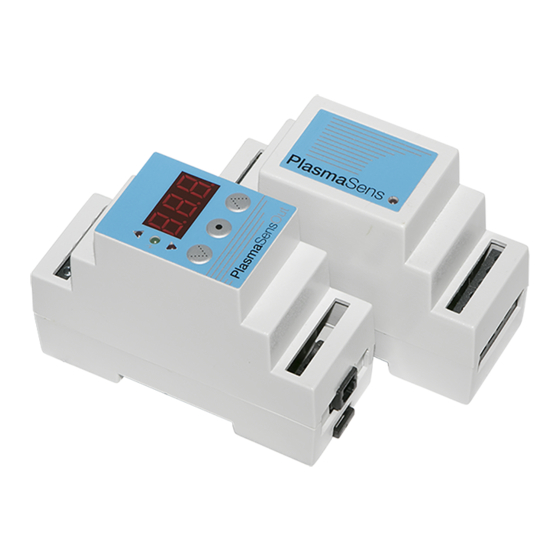
Table of Contents
Advertisement
Quick Links
Advertisement
Table of Contents

Summary of Contents for PlanetCNC THC
- Page 1 Torch height controller user manual 2020/08/26...
- Page 2 Disclaimer TORCH HEIGHT SENSOR DEVICE AND TORCH HEIGHT CONTROLLER ARE PROVIDED TO YOU "AS IS," WITHOUT WARRANTY. THERE IS NO WARRANTY FOR THE HEIGHT SENSOR AND HEIGHT CONTROLLER, EITHER EXPRESSED OR IMPLIED, INCLUDING, BUT NOT LIMITED TO, THE IMPLIED WARRANTIES OF MERCHANTABILITY AND FITNESS FOR A PARTICULAR PURPOSE AND NONINFRINGEMENT OF THIRD PARTY RIGHTS.
-
Page 3: Introduction
Heat emitted from plasma could deform workpiece material, usually metal sheet. In such case plasma cutter would not cut at constant height which could result as a faulty workpiece or could damage plasma cutter in the process. This is usually solved with THC device. THC stands for Torch Height Control. -
Page 4: Features And Specifications
Introduction 1.2 Features and specifications: Torch height sensor device: • Plasma arc voltage measurement up to 350 V • Additional input for divided plasma voltage (1:50) up to 10 V • Plasma voltage present signalization • Full optical output isolation; transmitter and receiver connected over an optical fiber cable •... -
Page 5: Hardware
Hardware 2 Hardware 2.1 Torch height controller terminal description... -
Page 6: Torch Height Sensor Terminal Description
Hardware 2.2 Torch height sensor terminal description... -
Page 7: Connection Diagrams
Connection diagrams 3 Connection diagrams High voltage source from plasma cutter... - Page 8 Connection diagrams 3.1.1.1...
-
Page 9: Divided Voltage Output Source From Plasma Cutter
3.2 Divided voltage output source from plasma cutter 3.3 Torch height controller connection with PlanetCNC controller inputs Please note that Down, Up, Arc OK signals can be connected to any input of PlanetCNC controller since inputs function can be configured later in PlanetCNC TNG settings. -
Page 10: User Interface
Ref - HYS/2, up signal is generated (see the output signal example below). Factory setting 6 V. - Ant-dive limit from 50 V to 300 V. Arc voltage that disables THC. If voltage goes higher than Anti-dive limit all output signals go low. The parameter’s value must be set higher than reference voltage. - Page 11 User Interface...
-
Page 12: Controller Input Configuration In Planetcnc Tng Software
Controller input configuration in PlanetCNC TNG software 5 Controller input configuration in PlanetCNC TNG software User can configure controller inputs for THC under File/Settings/THC. - Page 13 Controller input configuration in PlanetCNC TNG software Axis: User selects machine axis from drop down menu. Selected axis will be height compensated. Dec Pin: Dec input pin number, located at INPUT header of controller. Select input pin number from drop down menu.
- Page 14 Controller input configuration in PlanetCNC TNG software When torch height controller will activate its output, corresponding digital input of controller should activate. You can observe status of controller inputs via IO tab of PlanetCNC TNG state panel.
-
Page 15: Thc Related G-Codes
- R = constant speed If speed limit is set then THC will not move Z axis if machine speed is below set speed. If constant speed is enabled then THC will not move Z axis if machine is accelerating or decelerating. -
Page 16: Table Of Contents
3 Connection diagrams......................7 3.1 High voltage source from plasma cutter..............7 3.2 Divided voltage output source from plasma cutter............9 3.3 Torch height controller connection with PlanetCNC controller inputs.......9 4 User Interface........................10 5 Controller input configuration in PlanetCNC TNG software..........12 6 THC related g-codes.......................15...

Need help?
Do you have a question about the THC and is the answer not in the manual?
Questions and answers